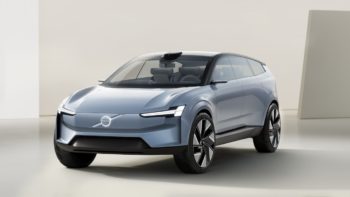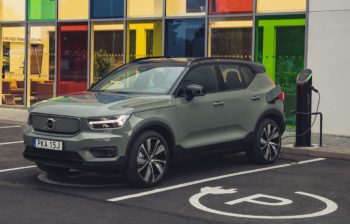In an interview with Autocar UK published on January 10, 2022, Volvo CEO Hakan Samuelsson revealed that the S and V lineups in Volvo’s portfolio, which currently has the Volvo S60, Volvo V60, Volvo S90 and Volvo V90, will be replaced by something more attractive for the consumers. While previously Samuelsson didn’t sound confident about the future of the wagon and sedan in the Volvo lineup, which is powered by SUVs, he has confirmed that successors are planned for the S and V cars.
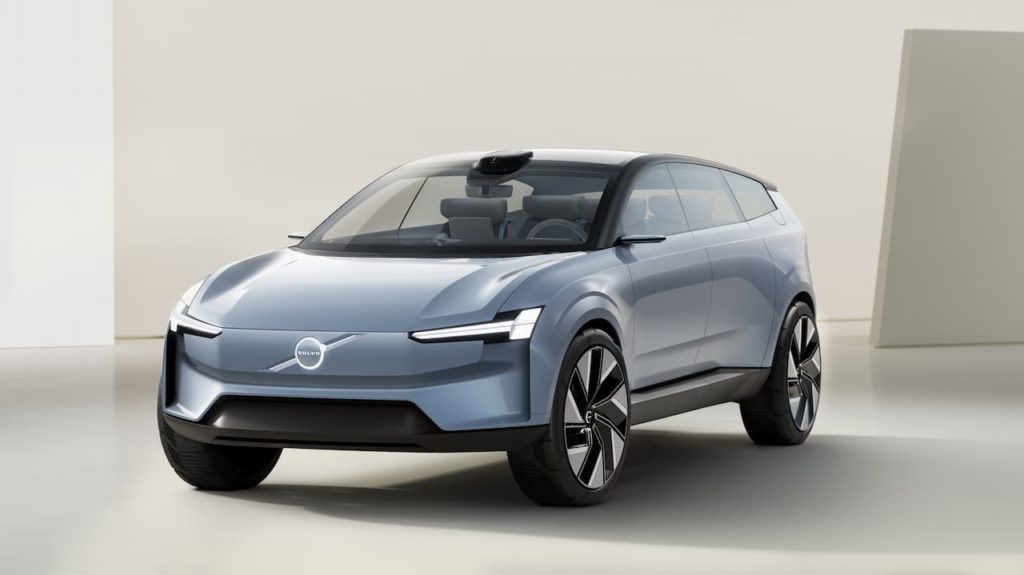
Since Volvo Cars is targeting to be a fully electric carmaker by 2030, all future products are expected to feature a streamlined look. It is common knowledge that an EV’s design is usually optimized to reduce air resistance. An EV with a boxy design will have a high drag coefficient and reduced energy efficiency, thereby not competitive in range.
Volvo’s EV Strategy
Before the switch to 100% EVs, Volvo aims to have a 50% all-electric portfolio by 2025, comprising hybrids. In a press bulletin issued on March 2, 2021, Samuelsson said that the internal combustion engine is a shrinking technology, and Volvo wants to invest in future electric powertrains.
To achieve this ambitious goal, Volvo is partnering with NorthVolt, Sweden’s leading battery company and investing SEK 30 billion ($3.3 billion) in a joint R&D centre in Gothenburg, Sweden, announced Volvo in a press statement dated December 10, 2021. The R&D centre is to be established this year, near Volvo Cars’ own R&D operations centre. This joint venture will aid the development and sustainable production of batteries for Volvo’s next generation of pure electric vehicles. This plant aims to produce batteries using 100 per cent renewable energy.
The batteries produced under this partnership will have an increased energy density by up to 50% compared to what is available in the market today. By the late 2020s, Volvo is looking to break the 1000 Wh/l energy density milestone, providing a real-world driving range of 1,000 km. In addition, the charging times for the new generation of batteries will come down significantly, along with advanced fast-charging technologies to hasten the adoption rate of EVs.
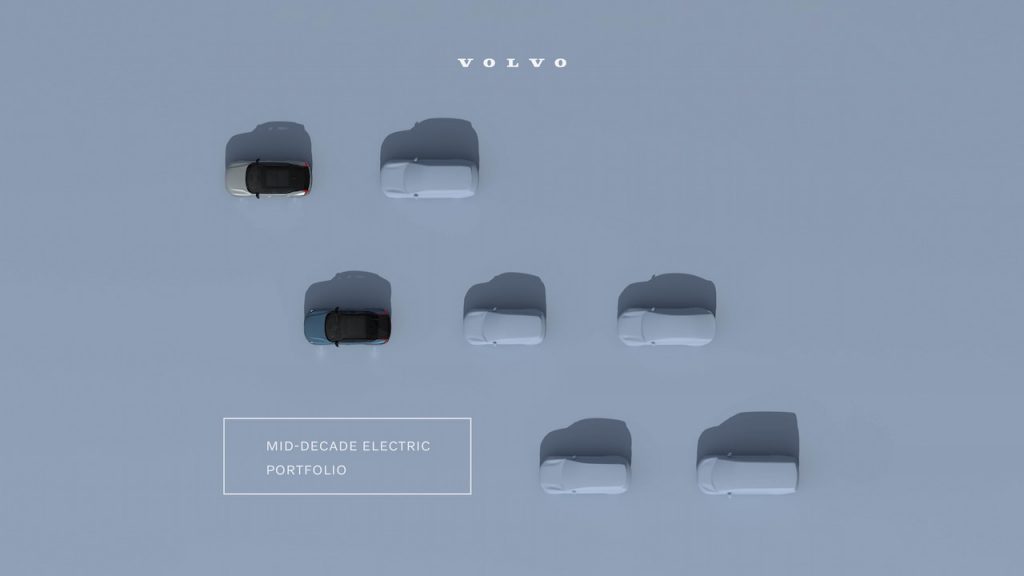
Volvo Concept Recharge
The Volvo Concept Recharge announced on June 30, 2021, is the company’s manifesto for future electric cars. It rides on a dedicated EV platform, which should be used for the successors of the 60 and 90 Series cars. Expect ample interior space, sustainable materials, and a 15-inch touch screen running VolvoCars.OS.
Safety has been synonymous with Volvo for decades, and it will be carried into the electric era as well. A LiDAR system will be installed on the car’s roof, expected to offer Level 3 autonomous driving functions.
Featured image: Volvo concept by Lukasz Myszynski, via Behance
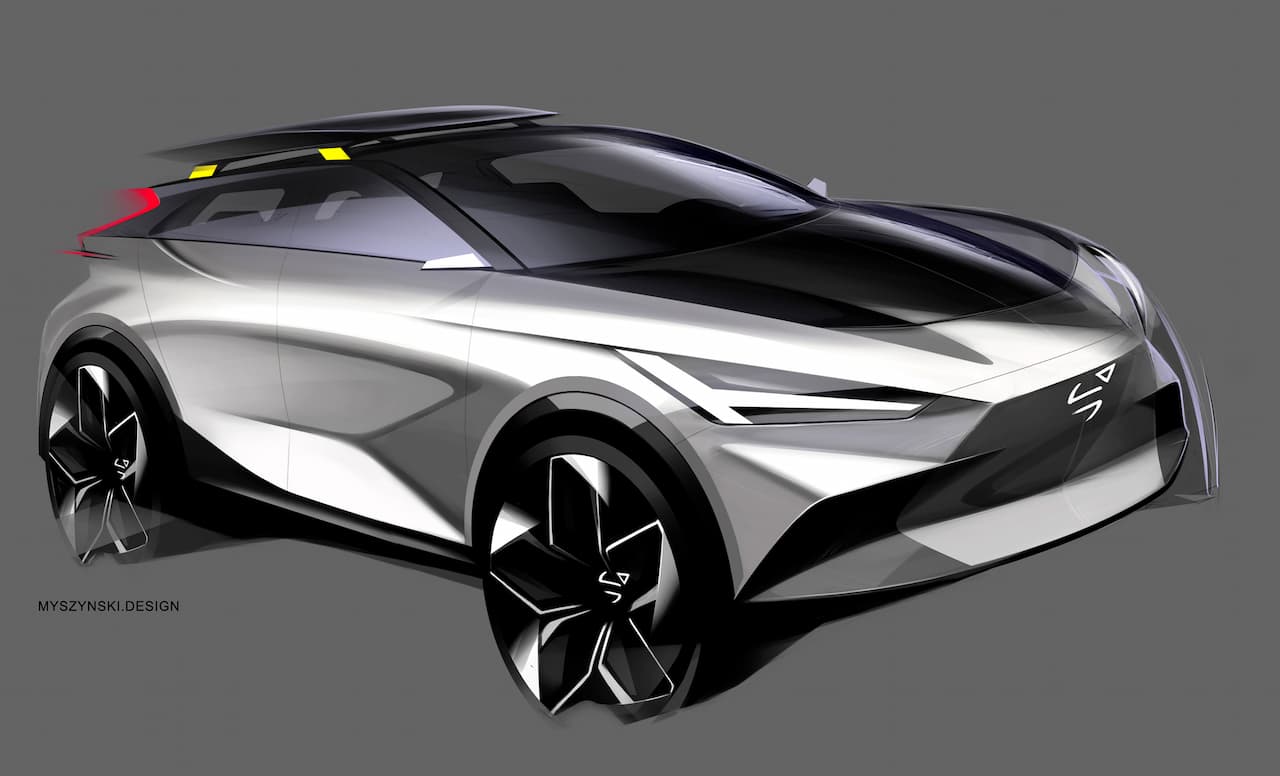
![Volvo XC20 back on the table as compact EV SUVs trend [Update]](https://electricvehicleweb.com/wp-content/uploads/2021/04/Volvo-electric-SUV-concept-unofficial-350x198.jpg)
